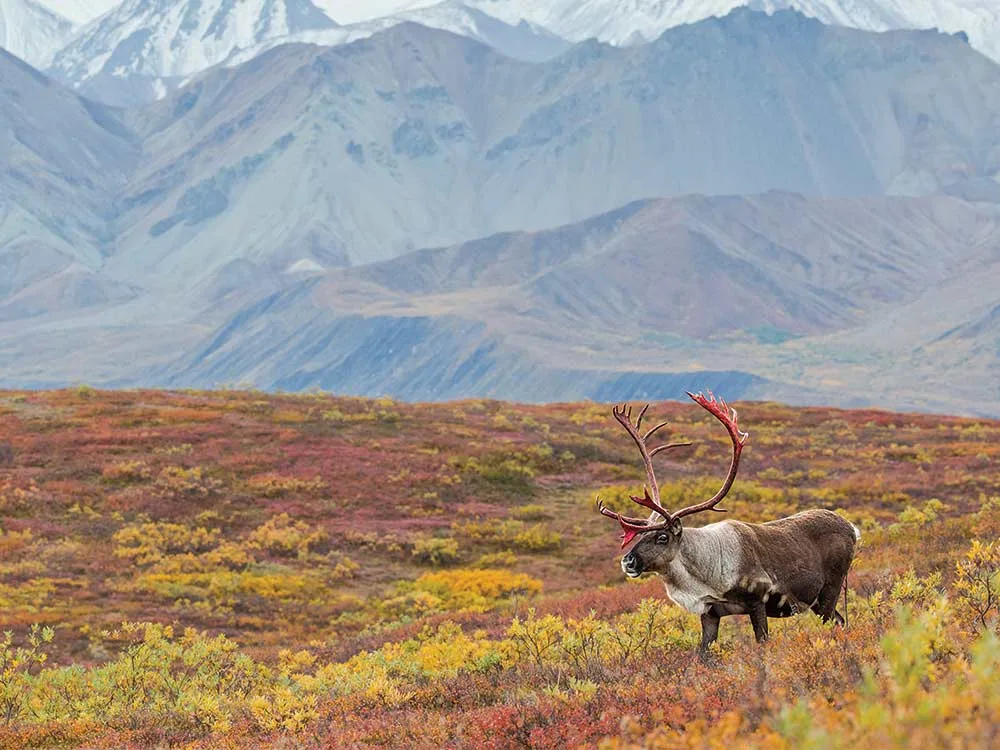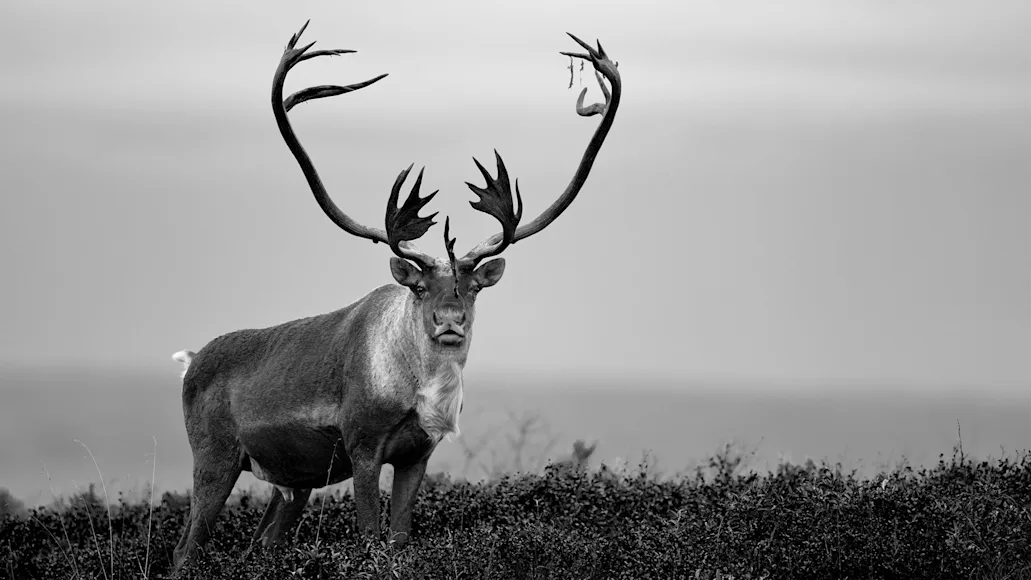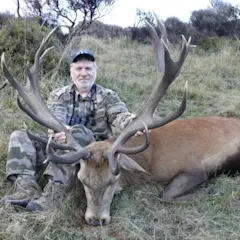Editor’s Note: All this week, through Sunday, we are bringing you a series called A Week In Hunting Camp_—seven stories in total, each one about a single day (or night) in camp, featuring both original works and a few modern classics from the archives. You can read the first four stories here: Day One
, Day Two
_, Day Four
, Day 5
, and Day 6
.
Learn how to upgrade your membership plan and get the new print magazine!
Day Seven: Tagged Out in Caribou Camp

A solitary bull caribou moves through the tundra. Donald M. Jones
Once in a great while, whatever force controls our destiny gives a hunter a break. You punch your tag early on and then get to loaf in camp while everyone else goes out and busts their hump in the rain, snow, and cold. I got one of those days in a caribou camp about 70 miles east of Dillingham, Alaska, in the early 1990s.
Caribou are flighty creatures, and hunting them is a case of feast or famine. They can come clickety-clicking right through your camp in brigade strength, or you can walk yourself to death and never see one. On this occasion, with no effort at all, I had killed a nice bull caribou the day before. We took a boat ride. I walked up a short trail to the top of a bluff that overlooked a traditional caribou river crossing. (Caribou are big on tradition.) We planned to wait there until something showed up, but no sooner had I racked a round in the chamber when down the trail to the river came a small herd with the bull in the lead. In a situation like this, the prudent hunter waits until the herd is across the river and onto your side so that you don’t have to wade into the water to haul out a soggy 300-pound animal.
Obligingly, the bull crossed, and I shot, and that was the end of the hunt for David.
The next day, I had the option of going out with the other two hunters or loafing. I chose the latter, since one of the guides was a transplanted Montanan whom we called the Energizer Bunny because he walked very fast and never stopped and never slowed down.
And loaf I did. Nearly a quarter century later, I’m hard put to tell you why I enjoyed that day so much. Perhaps it was simply being in true wilderness. The nearest town, as I said, was Dillingham, which had a population of about 2,600 and was reachable only by plane or boat. I might as well have been on Mars. There were no planes in the sky, and no sounds except the wind and the splash of a fish and the chattering of camp robbers.
I remember sitting and watching the river that flowed by camp. I remember looking for something for lunch and finding a can of Argentine beef (at least that’s what the label said; I have my doubts) that was roughly one-third gristle, one-third fat, and one-third salt. It tasted terrific. I split firewood for a while.
Around 3 o’clock, the perfect, sunny day turned dark, and the rain began. It poured. I started a fire in our tent and one in each of the other two tents. The other hunters and guides arrived about then, soaked to the skin, wiped out from having run up and down every mountain in sight, without a caribou to show for it.
I, however, was dry, rested, and smug, belching Argentine mystery meat and expressing sympathy that I did not feel for their suffering.
The next day, we broke camp and floated downriver to meet the plane. It was on this trip out, I think, that we were waiting for the plane on a sandbar, and it was cold, so we built a roaring fire. When the fire got going, a bull moose stepped out of the reeds and watched it with us, just one of the gang.
Looking back, I’ve tried to figure out what made this day a gift. Probably, it was simply catching a break. You don’t get that many breaks in this life.






